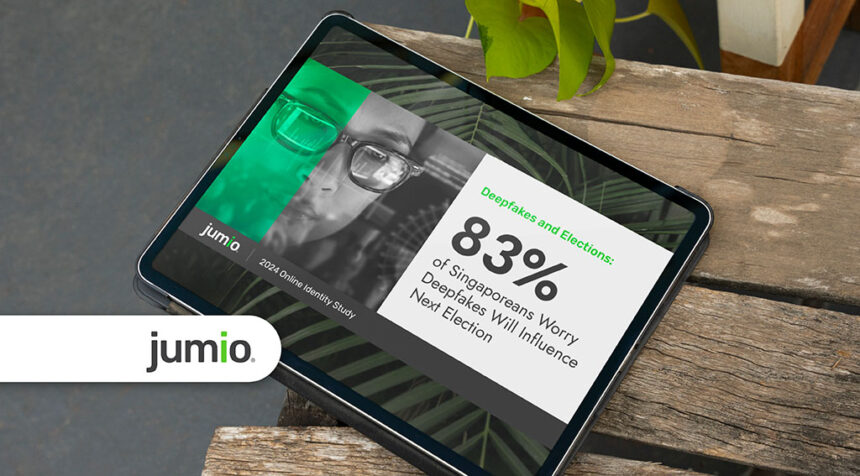Recent research has shown that JumioThe company, which provides AI-driven identity verification and compliance solutions, has found that a majority of consumers in Singapore are concerned about the impact of deepfakes on the upcoming election.
The survey found that 83% of Singaporeans are concerned about AI and deepfakes in politics, compared with 75% globally.

Despite the possibility of encountering deepfakes of audio, video and images, 66% of respondents in Singapore still trust online political news, higher than the global average of 43%.
by Jumio 2024 Online Identity SurveyEighty-three percent of respondents in Singapore are concerned that artificial intelligence (AI) and deepfakes could influence the outcome of the election, and 76% reported increased skepticism of online content.
The study highlights how advances in AI and machine learning are making it easier to create convincing fake news and altered images, videos and audio recordings.
These technologies have the potential to spread misinformation and mislead the public.
This concern is not unfounded, as similar issues have been observed around the world.
For example, ahead of Indonesia’s February elections, AI was used to spread misleading information, including that a deceased army general supported the incumbent.
Singapore is considering measures such as a temporary ban on political deepfakes to mitigate these risks ahead of elections due by November 2025.

The approach mirrors South Korea’s recent move to ban deepfakes for 90 days ahead of its April 2024 elections.
Jumio’s survey of more than 8,000 adults in the UK, US, Singapore and Mexico provides a global perspective on the issue.

“With half the world’s population taking part in elections this year, the potential influence and impact of generative AI and deepfakes requires urgent attention. Public trust in online information is eroding, calling for a transparent debate to rise to this challenge and provide citizens with the tools to spot and report deepfakes.”
Online platforms have an important obligation to bolster their defenses against deepfakes that could influence this crucial election, leveraging cutting-edge detection methods such as multi-modal biometric systems.”
Jumio CEO Robert Priggi said:
The spread of deepfakes not only threatens the political landscape; It poses huge risks in areas such as finance.addressing similar concerns around identity verification and fraud.
Featured Image Credit: Free Pick









